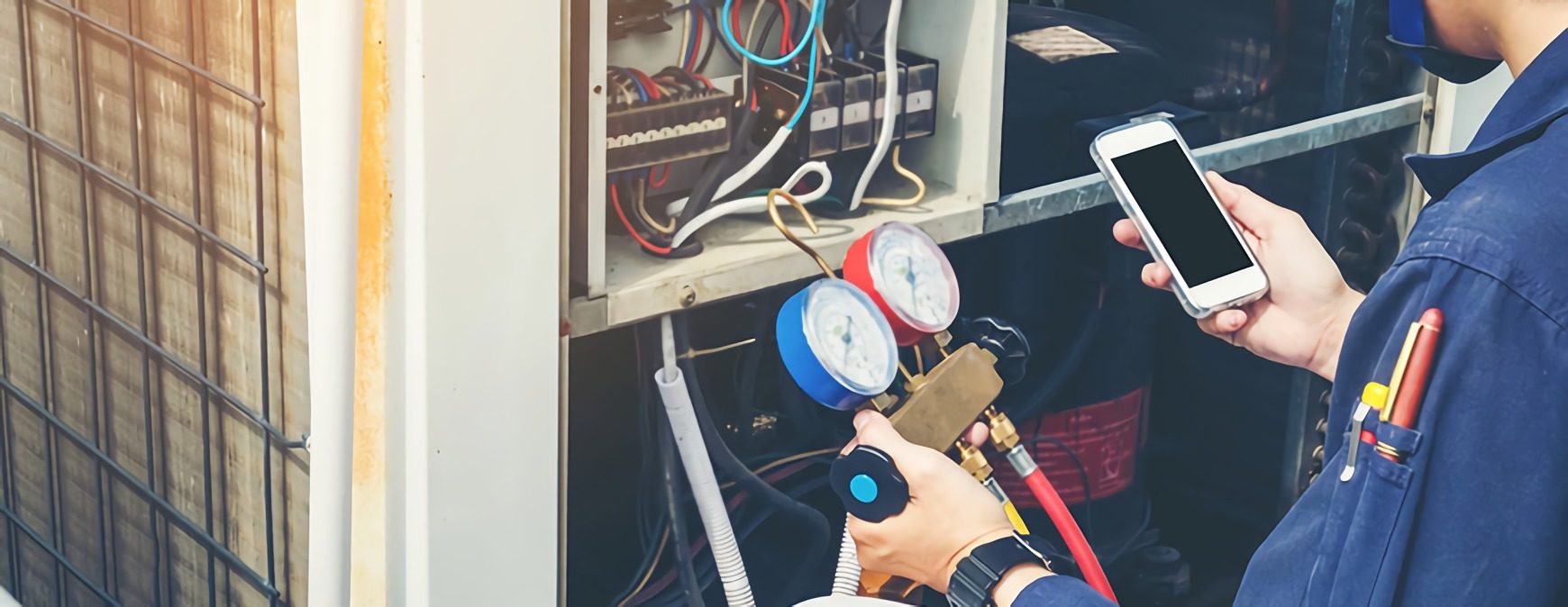RSI is a Great Training Option for Everyone
Learn more about how we can prepare you to advance your career.
Over the past few years, there’s been a growing focus on sustainability across industries as customers, business leaders, and governments seek to minimize the negative impact of human activity on the planet.
Considering how commercial temperature control systems can impact the environment, HVAC technicians should pay close attention to this trend!
Why is HVAC sustainability important?
Commercial buildings make up over a quarter of yearly global CO2 emissions.
The output varies greatly between businesses depending on their size, energy consumption, and sector, but the numbers still highlight the sheer impact of the commercial sector on the environment.
On average, between 40% and 50% of a building’s total energy consumption is eaten up by commercial HVAC systems. This means heating and cooling make up a big part of a building’s carbon footprint. This automatically makes HVAC systems a target for sustainability efforts.
Get Started on the Path to a New Career
Fill out our form to learn how we can help you change your life.
Although the environmental benefits take center stage, business owners also stand to gain from the increased sustainability of commercial HVAC systems. Environmentally friendly technology runs more efficiently, which means fewer operational costs for businesses.
And get this: 90% of customers are more likely to work with a business that supports environmental causes.
Where commercial HVAC is becoming more sustainable.
Geothermal Systems
There’s been a growing shift toward geothermal technology to cut down on an HVAC system’s energy consumption.
These products date all the way back to the 40s, but as environmental concerns rise, they are receiving lots of attention.
By drawing on the natural heat produced by Earth via underground pipes, geothermal HVAC systems can seriously cut back on the amount of energy being used without sacrificing any comfort. On average, geothermal systems are four times more efficient than their standard counterparts. They’re used for both commercial heating and cooling, allowing businesses to cut emissions year-round!
Next-Gen Refrigerants
Refrigerant is a fundamental chemical used in commercial HVAC systems, but it has negative environmental consequences.
So much of modern society relies on this chemical that its immediate disappearance would lead to a refrigeration apocalypse, causing hot cities to become unlivable, foods to spoil in hours, and buildings to become unbearably uncomfortable.
Since we can’t actually get rid of this chemical, there’s been a growing effort in the HVAC industry to develop more environmentally friendly alternatives.
The most recent generation of refrigerants, known as hydrofluoroolefins (HFOs), are broken down by the atmosphere in just a few days instead of years. This makes commercial HVAC systems much more sustainable.
Heat Pumps
Heat pumps are another sustainable development making waves in the commercial HVAC industry. These systems typically use electricity to heat and cool buildings by transferring heat instead of generating it.
Air source heat pumps, the most common models, are capable of cutting a building’s energy usage in half when compared to standard heating methods. Many heat pumps are also equipped with two-speed compressors that allow commercial systems to operate just below capacity to reduce energy loss from compressor wear and constant on/off activity.
Smart Thermostats
Businesses eat up a lot of unnecessary energy when their HVAC systems aren’t aligned with their heating and cooling needs.
Smart thermostats adjust temperature settings automatically to accommodate a business’s ever-changing demands. These high-tech devices can automatically switch off an HVAC system when it isn’t needed and adjust temperature slightly when nobody is in the office.
Smart thermostats result in fewer carbon emissions while maintaining a comfortable environment.
The U.S. Environmental Protection Agency and U.S. Department of Energy-backed program Energy Star estimates that the US could offset $500 billion of energy costs every year if everyone adopted smart thermostats.
Where commercial HVAC techs come into play.
It’s great for current and aspiring technicians to see how the HVAC field has changed over time, but it’s just as important to highlight how these changes benefit skilled trade professionals.
Sustainable trends in commercial HVAC are healthy for the environment and the economy. They create new jobs for HVAC techs.
Why? Well, HVAC techs are needed to install, maintain, and service the new equipment and technology.
To remain competitive in the job market, commercial HVAC techs need to stay up to date on the latest sustainability developments. They should be able to answer common customer questions about the costs of new commercial HVAC systems and how commercial HVAC works.
As environmentally friendly HVAC technology changes, so will the answers to these questions.
Wondering how to become a commercial HVAC technician? Read about the basics of a commercial HVAC program at The Refrigeration School.
Additional Sources
This blog has been labeled as archived as it may no longer contain the most up-to-date data. For a list of all current blog posts, please visit our blog homepage at https://www.rsi.edu/blog/




